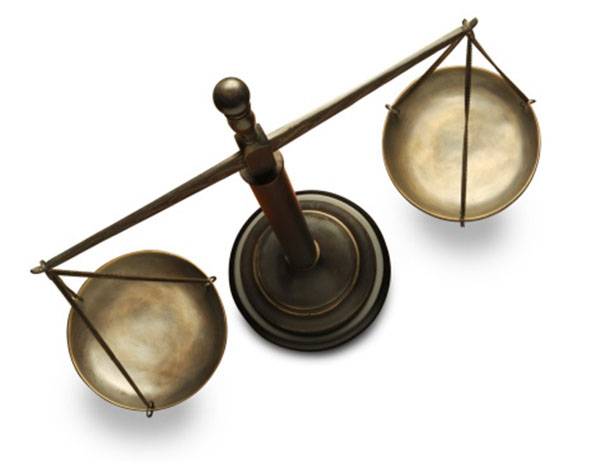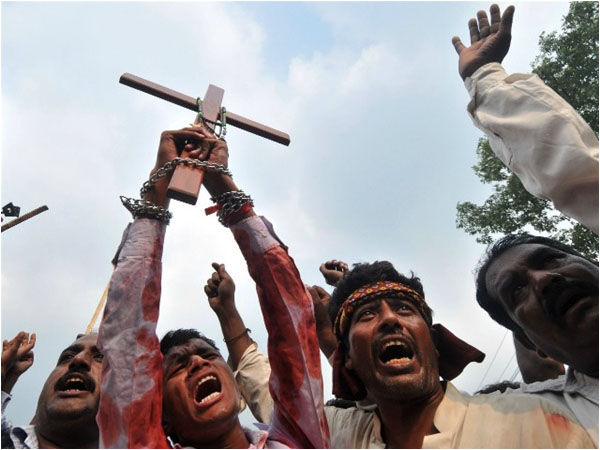
This past Wednesday, I sat in the company of well-educated, well-meaning and ostensibly enlightened people at a gathering in Islamabad. Puns were spun, jokes cracked, people lambasted for one thing or another. It was supposed to be a light, carefree evening. Then a friend commented on how she was not happy with the services of her maid. “TheseChuhras are so lazy,” she said. The statement was said in such a nonchalant, flippant way, that it shocked several of us. As the conversation went on, it was revealed that she did not know the term was derogatory, and that she didn’t see a problem with it.
Pundits and activists bemoan the state of minority rights and the institutionalization of the marginalization of minorities in Pakistan, but in our own homes, backyards and gatherings, we are surrounded by people who, despite their fancy Ivy League degrees, are fundamentally ignorant of why the term Chuhra is derogatory, insensitive, and offensive. Obviously this is anecdotal, and I don’t have access to any data that suggests that even the best educated among us are not aware of the historical and constitutionalized prejudice faced by monitories in Pakistan. But this does not change the fact that even those that have the power to change attitudes, shape beliefs, and alter history are not armed with the knowledge necessary for a person in their position.
While Muslims around the world are excelling in their careers in predominantly non-Muslim societies because of equal opportunity and respect for diversity, in our own land of the pure, we have institutionalized the marginalization of minorities. For instance, our Constitution promises everyone equal citizenry under Article 25, which says, “All citizens are equal before law and are entitled to equal protection of law.” However, the same constitution also prevents any non-Muslims from holding the office of the President (Article 41(2)) or Prime Minister (Article 91(2)). Think about that for a second. Our constitution prevents non-Muslims from holding the two highest offices in the land purely on the basis of their religion. Ironically, we also celebrate ad nauseam when Muslims are elected the mayors of London or Rotterdam, despite the fact that minorities in Pakistan are not afforded the same equal opportunity.
The arguments for these clauses make little sense in this day and age when multiculturalism, pluralism and strength in diversity form the tenants of a strong and stable economy, and a prosperous nation. The prime minister took a great step in November, at a Diwali function, when he said, “We are one nation and forging unity and consensus among them is my mission. Muslims, Hindus, Sikhs, Christians and Parsis are part of the country.” This is a powerful sentiment, one that promises equality and parity, and provides a hopeful window into a more tolerant, accepting future. But there is much work to be done.

One of the biggest sources of hatred and misinformation against minorities, particularly Pakistani Hindus, is embedded in our curricula. This is not new information, there are well-documented instances of bigotry, fear-mongering, and promulgation of anti-Hindu sentiment in our textbooks. For generations, we have been teaching our children that it is perfectly normal to subjugate or discriminate against a minority, and then we act surprised when we see vicious acts of violence or discrimination against the same communities. If Pakistan is to progress, one of the first steps has to be to shred this content from our textbooks, and systematically dismantle the lobby in the teaching community that proliferates these sentiments.
Pakistan was created as a land where people of all faiths and backgrounds could co-exist. Muhammad Ali Jinnah said the following in February 1948, months before he passed away:
“The constitution of Pakistan has yet to be framed by the Pakistan Constituent Assembly. I do not know what the ultimate shape of this constitution is going to be, but I am sure that it will be of a democratic type, embodying the essential principle of Islam. Today, they are as applicable in actual life as they were 1,300 years ago. Islam and its idealism have taught us democracy. It has taught equality of man, justice and fairplay to everybody. We are the inheritors of these glorious traditions and are fully alive to our responsibilities and obligations as framers of the future constitution of Pakistan. In any case Pakistan is not going to be a theocratic State to be ruled by priests with a divine mission. We have many non-Muslims – Hindus, Christians, and Parsis – but they are all Pakistanis. They will enjoy the same rights and privileges as any other citizens and will play their rightful part in the affairs of Pakistan.”
Were he around today, what would he think of what we have allowed ourselves to become?
The author is a journalist and a senior research fellow at the Center for Research and Security Studies, Islamabad
Email: zeeshan[dot]salahuddin[at]gmail.com
Twitter: @zeesalahuddin
Pundits and activists bemoan the state of minority rights and the institutionalization of the marginalization of minorities in Pakistan, but in our own homes, backyards and gatherings, we are surrounded by people who, despite their fancy Ivy League degrees, are fundamentally ignorant of why the term Chuhra is derogatory, insensitive, and offensive. Obviously this is anecdotal, and I don’t have access to any data that suggests that even the best educated among us are not aware of the historical and constitutionalized prejudice faced by monitories in Pakistan. But this does not change the fact that even those that have the power to change attitudes, shape beliefs, and alter history are not armed with the knowledge necessary for a person in their position.
She did not know the term was derogatory
While Muslims around the world are excelling in their careers in predominantly non-Muslim societies because of equal opportunity and respect for diversity, in our own land of the pure, we have institutionalized the marginalization of minorities. For instance, our Constitution promises everyone equal citizenry under Article 25, which says, “All citizens are equal before law and are entitled to equal protection of law.” However, the same constitution also prevents any non-Muslims from holding the office of the President (Article 41(2)) or Prime Minister (Article 91(2)). Think about that for a second. Our constitution prevents non-Muslims from holding the two highest offices in the land purely on the basis of their religion. Ironically, we also celebrate ad nauseam when Muslims are elected the mayors of London or Rotterdam, despite the fact that minorities in Pakistan are not afforded the same equal opportunity.
The arguments for these clauses make little sense in this day and age when multiculturalism, pluralism and strength in diversity form the tenants of a strong and stable economy, and a prosperous nation. The prime minister took a great step in November, at a Diwali function, when he said, “We are one nation and forging unity and consensus among them is my mission. Muslims, Hindus, Sikhs, Christians and Parsis are part of the country.” This is a powerful sentiment, one that promises equality and parity, and provides a hopeful window into a more tolerant, accepting future. But there is much work to be done.

One of the biggest sources of hatred and misinformation against minorities, particularly Pakistani Hindus, is embedded in our curricula. This is not new information, there are well-documented instances of bigotry, fear-mongering, and promulgation of anti-Hindu sentiment in our textbooks. For generations, we have been teaching our children that it is perfectly normal to subjugate or discriminate against a minority, and then we act surprised when we see vicious acts of violence or discrimination against the same communities. If Pakistan is to progress, one of the first steps has to be to shred this content from our textbooks, and systematically dismantle the lobby in the teaching community that proliferates these sentiments.
Pakistan was created as a land where people of all faiths and backgrounds could co-exist. Muhammad Ali Jinnah said the following in February 1948, months before he passed away:
“The constitution of Pakistan has yet to be framed by the Pakistan Constituent Assembly. I do not know what the ultimate shape of this constitution is going to be, but I am sure that it will be of a democratic type, embodying the essential principle of Islam. Today, they are as applicable in actual life as they were 1,300 years ago. Islam and its idealism have taught us democracy. It has taught equality of man, justice and fairplay to everybody. We are the inheritors of these glorious traditions and are fully alive to our responsibilities and obligations as framers of the future constitution of Pakistan. In any case Pakistan is not going to be a theocratic State to be ruled by priests with a divine mission. We have many non-Muslims – Hindus, Christians, and Parsis – but they are all Pakistanis. They will enjoy the same rights and privileges as any other citizens and will play their rightful part in the affairs of Pakistan.”
Were he around today, what would he think of what we have allowed ourselves to become?
The author is a journalist and a senior research fellow at the Center for Research and Security Studies, Islamabad
Email: zeeshan[dot]salahuddin[at]gmail.com
Twitter: @zeesalahuddin

